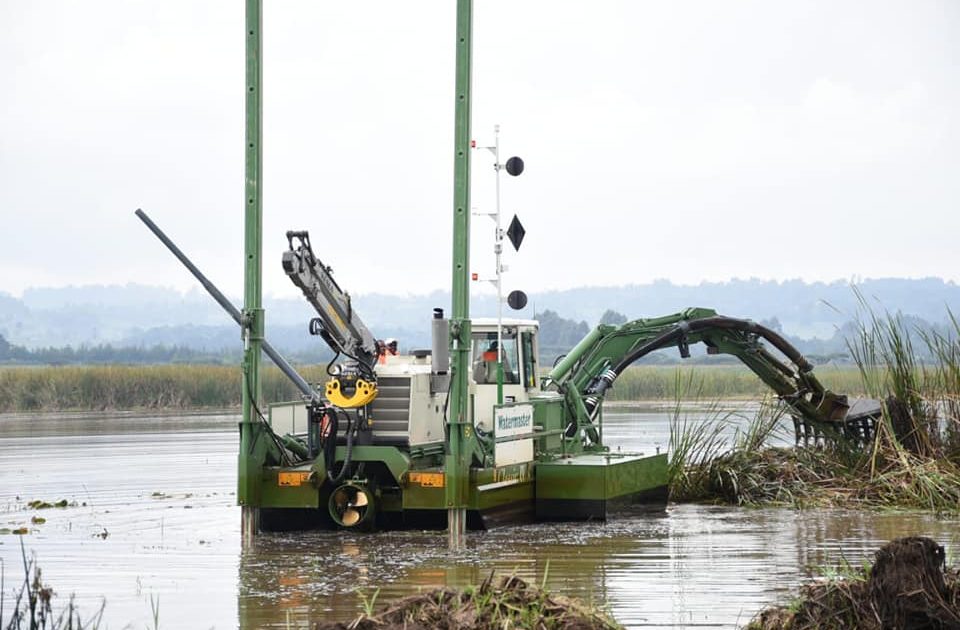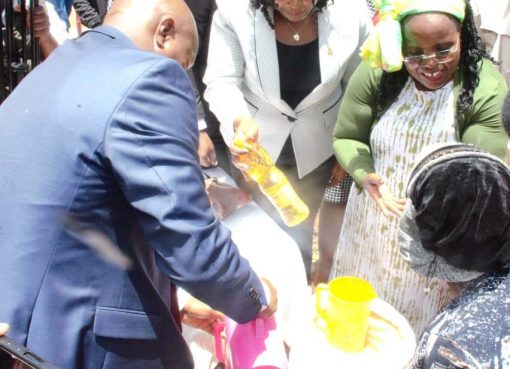A decision made by the county government of Uasin Gishu to prioritize water provision to achieve a target of 80 percent access to clean and potable water by 2022 up from 50 percent in 2013 has started bearing fruits.
More than 7,000 households in the county currently access clean piped water at their doorsteps, this follows the drilling and equipping of more than 62 boreholes with solar-powered pumps and erecting elevated steel tanks to distribute the water to the homesteads.
Records from the county indicate that an additional 24 boreholes have been drilled and are in the processing of being equipped to supply water to benefitting homesteads.
Each ward in the County has benefitted from borehole drilling which has ensured residents get water, says the County Governor Jackson Mandago
In Eldoret town the county is working with Eldoret water and sanitation company, (ELDOWAS) in collaboration with the National government in implementing various water projects in an effort to meet the current demand of 63,000 cubic metres of water daily.
To bridge the gap ELDOWAS in conjunction with other agencies are building Sosian dam to provide 9,000 cubic metres.
At the same time the department of water in partnership with Rift Valley Water Works Development Agency and Lake Victoria North Water Works Development Agency is developing the much-awaited Sh. 1.3 billion Kipkaren Dam water project that will increase water supply in the urban and peri-urban areas significantly.
According to Mandago the project, upon completion will inject an additional 24,000 cubic meters of water per day. This will boost water availability from the current 66,000 cubic meters per day to about 90,000 cubic meters.
Kesses water system that will supply water to Kesses area and its environs, including parts of Nandi County is also being implemented.
Currently, Eldoret town and its environs depend only on two dams, Chebara Dam in the neighbouring Elgeyo Marakwet county that provides about 24,000 cubic metres and Naiberi that supplies 15,000 cubic metres.
As the population in urban centres increases, there will be an increase in the demand for water for improved livelihoods.
To actualize its vision of providing clean piped water the county also decided to acquire its own drilling rigs and de-silting machinery like the long arm excavators, crawler excavators, dozers and a dredging boat that has enabled the county to drill several boreholes and also de-silt several dams to increase water storage for domestic use as well as small scale irrigation
Governor Mandago says the move aims at providing water for households, irrigation, and livestock use at the same time using dams as reservoirs.
“On completion of de-silting of the dams, households, schools, and public amenities upstream will get water. Solar pumps will be installed in the water projects to minimize costs,” he explains.
Some of the dams that have been de-silted include Kesses in Kesses Sub-County and Usalama Dam in Ainabkoi Sub-County.
The Usalama dam is expected to serve 400 households and put more than 80 hectares of land under small-scale irrigation.
More than 230 households upstream have benefited from the solar-powered upper Usalama Water project funded by the County Government. It has a 100 cubic meters ground masonry tank and a distribution pipeline to the households for domestic and livestock use.
by Kiptanui Cherono





